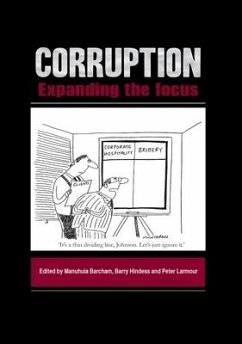
Expanding the Approach to Urban IPB
Versandkostenfrei!
Versandfertig in über 4 Wochen
15,99 €
inkl. MwSt.

PAYBACK Punkte
8 °P sammeln!
Although operational level intelligence was assessed as adequate for the initial phases of Operation Iraqi Freedom, discussion about the inadequacy of tactical intelligence support for commanders continues to resonate within the Military Intelligence Corps. The inability of the intelligence system to prepare tactical level commanders for the uncertainty of enemy actions in urban environments has brought into question whether tactical intelligence is equipped to meet the needs for relevance, granularity, and timeliness. In examining this, the majority of solution sets remain in the realm of for...
Although operational level intelligence was assessed as adequate for the initial phases of Operation Iraqi Freedom, discussion about the inadequacy of tactical intelligence support for commanders continues to resonate within the Military Intelligence Corps. The inability of the intelligence system to prepare tactical level commanders for the uncertainty of enemy actions in urban environments has brought into question whether tactical intelligence is equipped to meet the needs for relevance, granularity, and timeliness. In examining this, the majority of solution sets remain in the realm of force structure, equipment and training. But further examination points to the lack of dialogue on Intelligence Preparation of the Battlefield (IPB) for urban operations. Urban IPB is recognized as a clear challenge for all ground combat forces and has prompted responses to address shortcomings. It requires another alternative approach in order to address the complexity of the urban environment. The current four-step process is inadequate in light of the resources that could be available to analyze this problem. At the same time, IPB is well understood within the military and provides a touchstone that should be built upon. With this tension, there is an opportunity to address what is seemingly an intractable problem set for the intelligence community. Potential solutions lie in integrating theory, particularly in how we understand the dynamics of populations in urban areas, openly into our doctrine. Consolidating the doctrine that addresses IPB is an interim step can clarify how to approach analyzing urban centers but more importantly, help provide the basis to initiate analysis. Incorporating Joint Forces Command's Operational Net Assessment (ONA) provides a means to organize resources to support urban IPB and a way to apply different lenses in the examination and understanding of urban environments. Finally, establishing urban intelligence as a priority within the intelligence This work has been selected by scholars as being culturally important, and is part of the knowledge base of civilization as we know it. This work was reproduced from the original artifact, and remains as true to the original work as possible. Therefore, you will see the original copyright references, library stamps (as most of these works have been housed in our most important libraries around the world), and other notations in the work. This work is in the public domain in the United States of America, and possibly other nations. Within the United States, you may freely copy and distribute this work, as no entity (individual or corporate) has a copyright on the body of the work. As a reproduction of a historical artifact, this work may contain missing or blurred pages, poor pictures, errant marks, etc. Scholars believe, and we concur, that this work is important enough to be preserved, reproduced, and made generally available to the public. We appreciate your support of the preservation process, and thank you for being an important part of keeping this knowledge alive and relevant.












